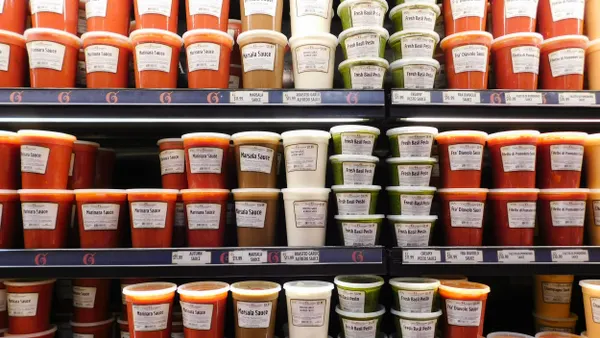Dive Brief:
-
Since CVS stopped selling tobacco products in 2014, Americans are now less likely to buy cigarettes, with CVS shoppers in particular 38% less likely to buy cigarettes anywhere, according to a study conducted by CVS researchers recently published in the American Journal of Public Health.
-
Those who purchased three or more packs per month were more than twice as likely to stop buying cigarettes altogether, according to the study.
-
The CVS researchers analyzed data from a nationally representative survey of consumers' cigarette purchasing behavior at drug, food, big box, dollar, convenience and gas station retailers prior to and one year following move, according to a press release.
Dive Insight:
CVS Health is eager to tout its findings that its decision two years ago to cease tobacco sales, leaving an estimated $2 billion worth of business behind, has helped diminish tobacco sales. The research confirms and expands on initial impact data the retailer released a year after the move.
"When we removed tobacco from our shelves, a significant number of our customers simply stopped buying – and hopefully smoking – cigarettes altogether instead of just altering their cigarette purchasing habits," CVS Chief Medical Officer Troyen A. Brennan, M.D., said in a statement. "This research proves that our decision had a powerful public health impact by disrupting access to cigarettes and helping more of our customers on their path to better health.”
Several medical experts and anti-tobacco advocates have pushed other retailers to follow in CVS’s footsteps, but so far its main rivals have resisted the peer pressure. At its shareholders meeting in January, for example, many more shareholders pressed Walgreens on its cigarette sales than on its merger outlook. One noted the incongruence of Walgreens’ position as a healthcare provider (especially one offering products and services to help people quit smoking).
Executive chairman James Skinner said the company spends a lot of time “trying to convince people to stop smoking … but we also respect the choice of our consumers — that’s also part of our decision over time.”
While CVS’s decision to halt tobacco sales has strengthened its position as a health care provider, the company hasn’t done enough to support its other retail sales, analysts say. Fourth quarter revenue in CVS's retail/long-term care pharmacy increased 4.7% to $20.8 billion, largely driven by the addition of Target pharmacies acquired in December 2015, the company said. Q4 pharmacy same-store prescription volumes rose 2.0% on a 30-day equivalent basis, and Q4 same store sales decreased 0.7%, with pharmacy same store rising 0.2% but front store same-store sales falling 2.9% on softer customer traffic and efforts to rationalize promotional strategies (partially offset by an increase in basket size).
GlobalData Retail managing director Neil Saunders said earlier this month that his firm's analysts were “surprised at the complete lack of evolution in the format and the paucity of innovation” in some CVS stores. “An attempt to dial back on front of store promotions and difficulties in driving traffic to shops diluted sales on the pure retail side,” Saunders said in a note emailed to Retail Dive. “However, in our view, these factors are simply part of the wider malaise in CVS’s store-based business. We have, for a long while, been critical of CVS’s lack of thinking in retail — an opinion that remains largely unchanged.”














